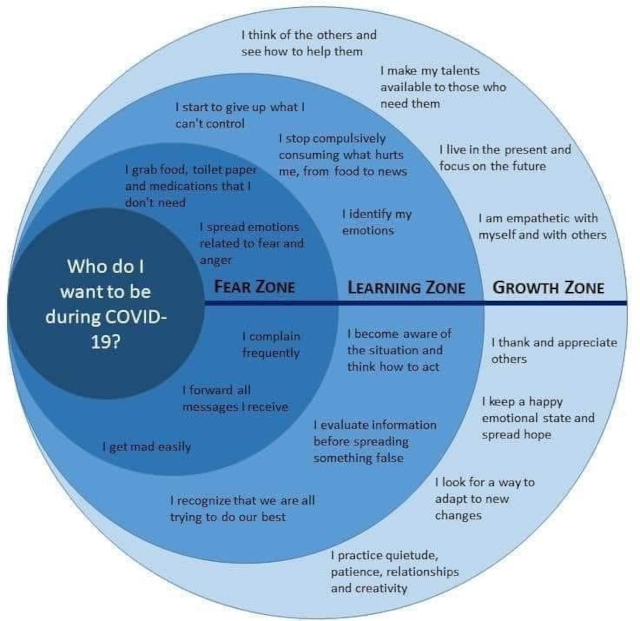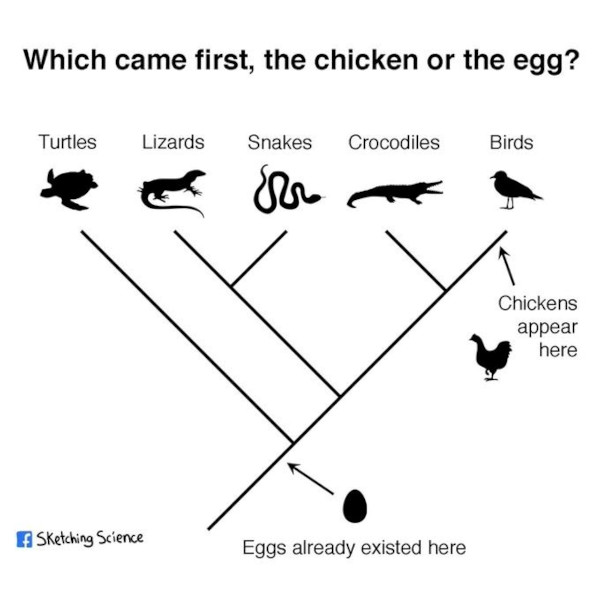[Image by klimkin from Pixabay]
Good morning,
As the second wave of coronavirus spreads across the country, you might have come across this image, probably for the second time. It was viral last year, during the first wave. And started surfacing again on WhatsApp, Twitter and other social media during the second. There is a reason why it has proven so sticky. It helps us visualise that the luxury of expansion belongs to us too; that we can move from fear zone, to learning zone to growth zone. It doesn’t matter if we fall back (for who can deny that the second wave is nothing like what we saw in the first), but we can move forward. The big question is, how can we do that?

We discussed within our team, dug into the Founding Fuel archives, and selected three lessons that will help us grow from fear to learning to growth, and in the process build resilience.
Building resilience: from fear to growth
1. Signal control through emotional equanimity and reframing focus on what matters
By K Ramkumar
Crisis leadership requires emotional equanimity. It requires an ability to engage your thinking to size up the situation—the trigger, the aggravators, the dampeners, the resources required to first contain and then extinguish it, deft organization of resources, clarity on who attends to what, what alliances or support are needed, and above all, prompt decision making.
Crisis creates strong turbulence in the environment. It alters the equilibrium, abruptly and dangerously. Like a ship caught in a raging storm and churning ocean. The captain needs to shift focus to the immediate—steer to calmer waters, re-establish equilibrium, and alter course. He cannot get caught up with the end-term objective, the destination port.
Watch the film Sully and Shackleton's Antarctic Adventure. In both cases, the leader took charge, reframed the objective and reset the course. When engines failed, Sullenberger took charge of the aircraft from his co-pilot. He remained calm. He used the information at his command, brought to bear his years of experience, and made a well-thought-through decision to abort going to LaGuardia or Teterboro airports, and land the plane in the Hudson. And he had mere minutes to take these calls.
(More: Lessons in crisis leadership from four stories of survival)
2. Beware the ‘second arrow’
(from Buddhist teachings)
By Vijay Bhat
Pervez D, 36, took over his family’s manufacturing unit three years ago. Last year, he took out a big loan for new equipment. His new factory was ready for commissioning. Now with the lockdown, everything has ground to a halt, but the meter is ticking. His supply chain originates in China and his core client base is in Western Europe—both have collapsed. Given the state of the stock market, his investments are of little use. Pervez is staring down the barrel and feels insecure.
The ‘first arrow’ is the pain caused by the event itself (the sudden shock of the lockdown).
The ‘second arrow’ is the suffering caused by how our mind processes the event (fear and anxiety about the loss of normalcy). It is said that pain is universal i.e. everyone feels it, while suffering is optional i.e. you can choose your response.
What you can do: Complete your Presence Practice. On a sheet of paper, create two columns. On the left (first arrow), capture the facts—what is actually happening/changing in your life? On the right (second arrow), note down your feelings—what are you experiencing in your body, and what stories or scenarios is your mind spinning? Just separating the facts from the feelings will give you a greater sense of taking charge of yourself and the situation. Perhaps some new and unexpected options will emerge.
(More: Leadership in a crisis: How to bend without breaking)
3. Practice deep listening
By Arun Maira
We must understand each other, and we must build bridges amongst communities with differences. Sadly, with the barrage of bits of information from our always on smartphones, we are losing the art of listening when we must learn to listen to each other more deeply.
The first level of listening is to pay attention to ‘what’ the other person is saying, even if one does not agree. The instinct of a debater is to get ready with a riposte to prove the other wrong. Therefore, a debater stops listening even while the other is speaking.
Unlike a good debater, a good listener listens well to what the other is saying and also ‘listens’ to her own mind’s reactions to it. She notices her disagreement, and her desire to counter the other. But she stops herself, and goes into a second and deeper level of listening. At this level, she wonders ‘why’ the other thinks the way he does. And, rather than debate the other, she asks the other, with genuine interest, ‘why do you believe what you do?’ Thus she begins to inquire into another’s way of thinking. And begins to see the ‘lens’ through which the other sees the world.
From this second level, deep listeners come to a third, even deeper level of listening. At this level, the listener begins to notice the difference between her own way of seeing the world and the other’s. Thus she may begin to see her own lens. Our lenses are our ways of seeing and thinking. They are buried within the backs of our heads. We cannot see them with our own eyes. However, we may see them reflected in the eyes of another. Deep listening makes one aware of ‘who’ another is. Deep listening also brings self-awareness, of who I am.
(More: Listening to them—and shaping our future together)
As we reflect on these lessons and think of ways to apply in our lives, let’s remember this is not the first time we have faced this situation. This is not the last time. Here’s an old Tamil poem, written by Kaniyan Punkunranar and translated by AK Ramanujan.
Every Town a Home Town
(Songs from the Purananuru - Song 192)
Every town our home town,
Every man a kinsman.
Good and evil do not come
from others.
Pain and relief of pain
come of themselves.
Dying is nothing new.
We do not rejoice
that life is sweet
nor in anger
call it bitter.
Our lives, however dear,
follow their own course,
rafts drifting
in the rapids of a great river
sounding and dashing over the rocks
after a downpour
from skies slashed by lightnings -
we know this
from the vision
of men who see.
So,
we are not amazed by the great,
and we do not scorn the little.
~ Kaniyan Punkunranar (translated by A. K. Ramanujan)
Tell us what keeps you going.
Chicken or egg?

(Via WhatsApp)
Tell us what you think and find noteworthy.
And if you missed previous editions of this newsletter, they’re all archived here.
Bookmark Founding Fuel’s special section on Thriving in Volatile Times. All our stories on how individuals and businesses are responding to the pandemic until now are posted there.
Warm regards,
Team Founding Fuel



